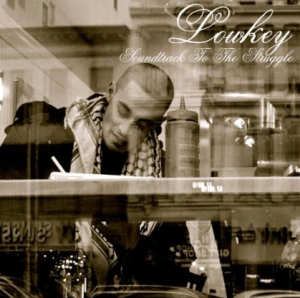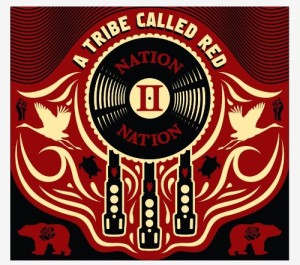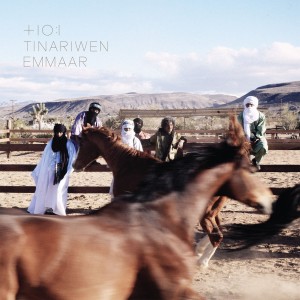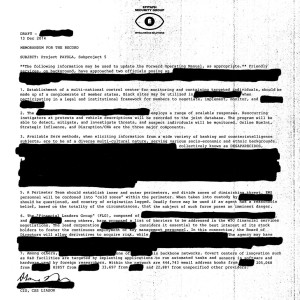Top 25 Protest Albums of the 2010s (So Far)

Editor’s Note
Many of the bands and singers are largely unknown and mostly do independent work. It is our hope that we might be introducing you to these bands and singers for the first time.
After taking time to appreciate the albums on the list, it is entirely possible you might find one of your favorite protest albums of the decade is missing. If that is the case, please share the name of it with us in the comments. We would be thrilled if this list leads to 25 more excellent protest albums, which we could feature later on in the year.
Now, please enjoy the artists on this list.
Let England Shake – PJ HarveyFebruary 11, 2011
|
From Africa With Fury: Rise – Seun Kuti & the Egypt 80April 4, 2011
|
Worldwide Rebel Songs – The NightwatchmanAugust 29, 2011
|
Soundtrack to the Struggle… – LowkeyOctober 16, 2011
|
Wrecking Ball – Bruce Springsteen & the E Street BandFebruary 11, 2012
|
Agnostic Hymns & Stoner Fables – Todd SniderMarch 6, 2012
|
Rebirth – Jimmy CliffJuly 17, 2012
|
Antibalas – AntibalasAugust 7, 2012
|
Mourning in America and Dreaming in Color – Brother AliSeptember 18, 2012
|
Sorry to Bother You – The CoupOctober 30, 2012
|
Soundtrack to the Revolution – Rebel Inc.November 20, 2012
|
Nation II Nation – A Tribe Called RedMay 7, 2013
|
White People and the Damage Done – Jello Biafra & The Guantanamo Medicine ShowApril 2, 2013
|
Transgender Dysphoria Blues – Against Me!January 21, 2014
|
Emmaar – TinariwenFebruary 11, 2014
|
Omnia – Earth WarriorApril 29, 2014
|
Government Issue Music Protest – Loki with Becci WallaceNovember 5, 2014
|
Sincerity – KimmortalNovember 28, 2014
On “Ancestral Clock (Boom Bop),” she raps, “The rhythm in my people never dropped, though our bodies were left to rot/Colonized afterthoughts/Green land but dead end jobs/History repeats and now pops grips a mop.” She contemplates how poverty has kept others in her family from pursuing their art, a fate she is committed to avoid. But the most uplifting track on the album is “She.” It is an anthem for women that pays tribute to the creators, anchors, leaders, artists, and mothers in her life, and tells men they cannot erase the minds of women simply because you only respect a woman when you desire her body. |
Black Messiah – D’AngeloDecember 15, 2014
|
Meanwhile in Afghanistan – David RovicsJanuary 5, 2015
|
To Pimp a Butterfly – Kendrick LamarMarch 16, 2015
“Hood Politics” compares gangs in Compton to gangs in Congress, with Lamar rapping, “Ain’t nothin’ new, but a flu of new Demo-Crips and Re-Blood-licans.” “How Much a Dollar Cost” showcases Lamar’s storytelling abilities as he describes meeting a homeless man, who he treats as a crack addict before he realizes it is God. Finally, one of his more hard-hitting raps on the album is “The Blacker the Berry,” which deals with self-hatred and the criminalization of black bodies. As he raps at the end, “Why did I weep when Trayvon Martin was in the street when gang banging make me kill a nigga blacker than me?/Hypocrite.” |
Full Communism – Downtown BoysMay 5, 2015
As Ruiz said in an interview for Impose, “Punk as an aesthetic and individualistic lifestyle means nothing. Punk as an ethics or collectivism, anti-oppression, and action can and should imbue everything from the stage to the picket line, but we have to make it mean that.” While still making good punk music with quality aesthetics, Downtown Boys creates songs with this politically-charged ethos. |
Whatever’s Left – Grace Petrie & The Benefits CultureJune 6, 2015
Similarly, “Whatever’s Left” is about welfare programs being in shambles. “I Do Not Have the Power to Cause a Flood” is a whimsical song about washing away homophobia and anti-gay bigotry in Russia, Uganda, and British broadcaster Jeremy Clarkson. The playfulness continues on “Revolutionary in the Wrong Time,” as Petrie sings about being a revolutionary singer “in the wrong time and the world ain’t changin’ for me.” Altogether, it’s a spirited collection of anthems for anyone trying to weather the decline of the social safety net in their country. |
Payola – DesaparecidosJune 23, 2015
|
The Monsanto Years – Neil Young & the Promise of the RealJune 29, 2015
|
| Do you have a favorite protest song or album? Are you an artist who has written and/or produced a protest song or album that you would like featured at Shadowproof? Send submissions to protestmusic@Shadowproof.com |

 This is the album of a singer-songwriter, who has grown terribly jaded with her country. “England, you leave a taste/A bitter one,” Harvey sings on “England.” It also manages to contain some of the most pointed messages about war in modern times in recent music. “In the Dark Places,” “Bitter Branches,” and “Hanging on the Wire” build on the crestfallen mood of the album and explore the different layers of tragedy in war. “Words That Maketh Murder” is more jubilant in its darkness, and the song specifically focuses on the Afghanistan War and failure of diplomacy to stop wars. It builds to “The Colour of the Earth,” featuring Mick Harvey, which memorializes over half million lives lost in the Gallipoli campaign in the First World War, adds more poignancy to the antiwar message of the album.
This is the album of a singer-songwriter, who has grown terribly jaded with her country. “England, you leave a taste/A bitter one,” Harvey sings on “England.” It also manages to contain some of the most pointed messages about war in modern times in recent music. “In the Dark Places,” “Bitter Branches,” and “Hanging on the Wire” build on the crestfallen mood of the album and explore the different layers of tragedy in war. “Words That Maketh Murder” is more jubilant in its darkness, and the song specifically focuses on the Afghanistan War and failure of diplomacy to stop wars. It builds to “The Colour of the Earth,” featuring Mick Harvey, which memorializes over half million lives lost in the Gallipoli campaign in the First World War, adds more poignancy to the antiwar message of the album.




























